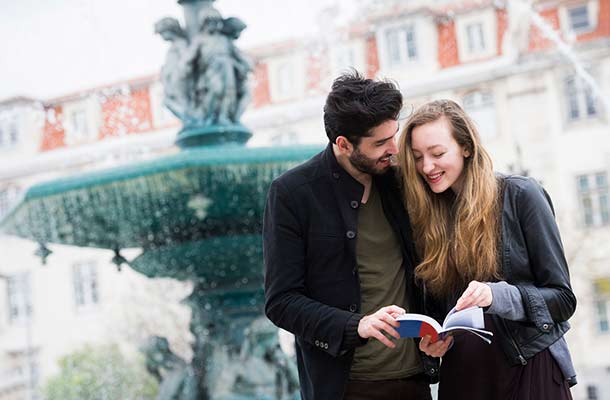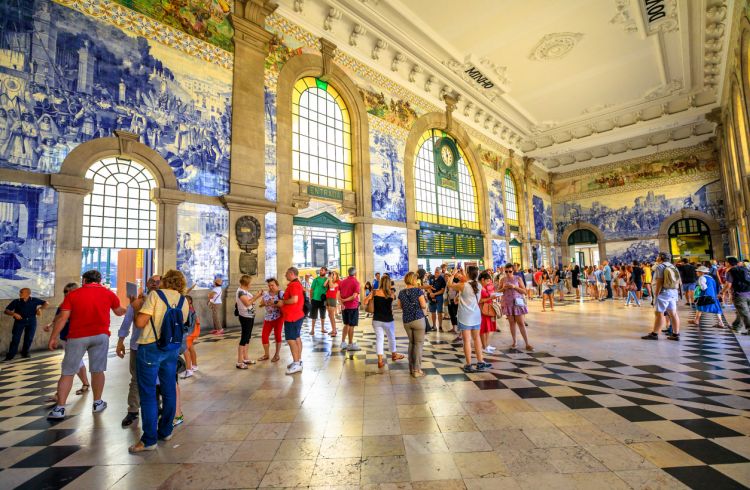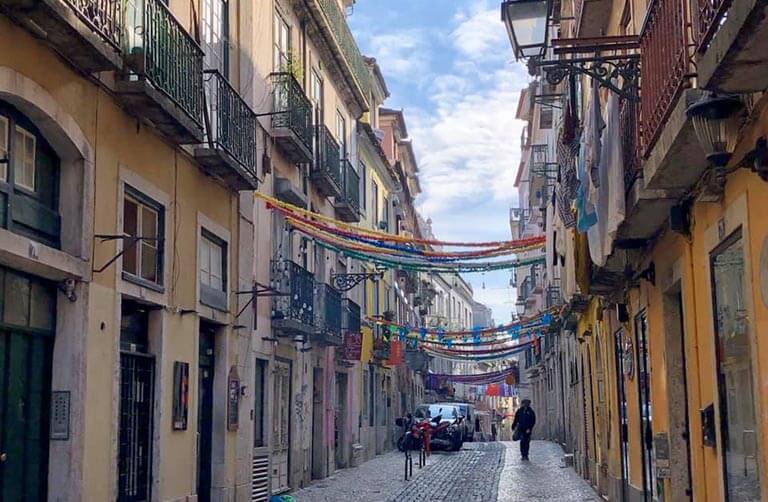Spanish won't get you very far in Portugal – they speak Portuguese. Learn some of the local lingo with these tips before you go.
 Photo © iStock
Photo © iStock
What language do they speak in Portugal?
Portugal may share a border with Spain, but the Portuguese have long had their own national identity, and they also have their own language – Portuguese.
Portugal has a proud history and they are proud people. They built the world's first global empire hundreds of years ago, which spanned from Brazil to India, from Africa to East Timor. In fact, many people believe the Portuguese were the first Europeans to discover Australia, and even New Zealand.
As a consequence the Portuguese language is spoken in Angola, Mozambique, Cape Verde, São Tomé and Principe, Guinea-Bissau, Brazil, East Timor and Macau. These countries make up the "Lusosphere".
Certainly the Portuguese have a shared history and affinity with Spaniards, but their language is not derived from Spanish as many clumsily assume.
Learn a few Portuguese phrases
Make an effort to learn the language before you go. (Our Portuguese travel phrasebook focuses on Brazilian Portuguese, which has some differences in pronunciation and grammar, but is a good place to start.) If that isn't working, shift to slowly spoken English, and finally, if you are really struggling and already know how to speak Spanish, try that.
One of these three options should help. If the person you're speaking to doesn't understand, try to find someone who does.
Most people you meet in Portugal will know bits and pieces of the English language – English is taught in all schools from the first grade.
As well as a basic Portuguese greeting like Ola (Hello), Bom dia (Good Day), or Boa tarde (Good Evening), say Estou a aprender o Portugues (I am learning Portuguese). It's a great ice-breaker, and proves you're trying.
Start with Com licença (excuse me) or Peço desculpa, mas (I'm sorry, but).
A simple Por favor (please) will take you far. Yes is pronounced Sim, and No is pronounced Nao.
Always speak slowly and clearly.
Finish with a cheery Obrigado/Obrigada (Thank you very much) or Boa sorte (Good luck).
Broken Spanish
Most locals won't be offended if you do, in confusion, turn to Spanish or English – in the last decade most places have become accustomed to tourists.
While traveling around tourist hot-spots there will be plenty of English speakers around to help you out. But when you venture off the tourist path, it's best to equip yourself with the basics of Portuguese.
Related articles
Simple and flexible travel insurance
You can buy at home or while traveling, and claim online from anywhere in the world. With 150+ adventure activities covered and 24/7 emergency assistance.
Get a quote


No Comments